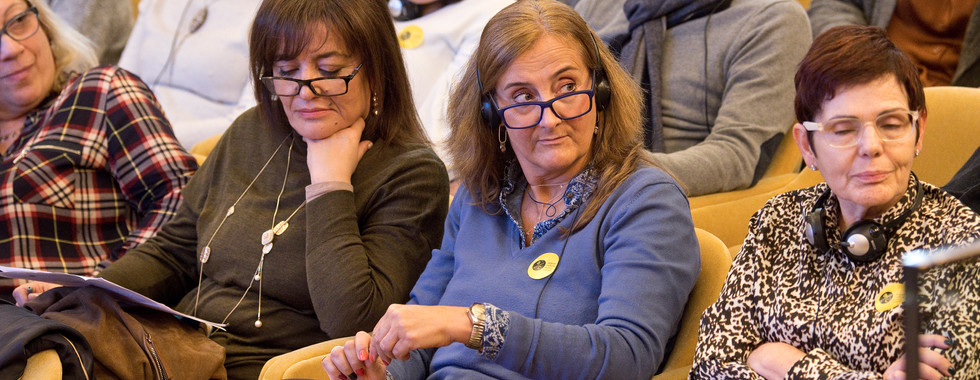Working on inclusion together: this was the Every Story Matters kick-off conference in Lisbon!
- yannick046
- Nov 30, 2019
- 3 min read
Updated: Sep 1, 2021

On 19 November 2019 we officially kicked off our project in Portugal (Lisbon) with a sector-wide conference. More than 100 publishers, authors, illustrators, librarians, teachers and other literature enthusiasts were invited to reflect on the lack of diversity in children’s literature today and possible ways to become more inclusive. Both Portuguese and other speakers from across Europe gave insight in their experience with publishing or writing inclusive content, finding new readers and tackling stereotypical representation. Had to miss it? Don’t worry! You can read some of our impressions below or view and listen the audio- and video registration on our YouTube channel (soon available).
In the first keynote speech of the day, publisher Carla Oliveira, founder of the Portuguese Orfeu Negro, pointed out how the children's series Orfeu Mini consciously wants to deviate from the norm and stereotypes. While the publisher closely monitors the diversity of stories, styles and perspectives on offer, she hopes that her publications will encourage children in particular to be themselves, despite their differences. Unfortunately, recognizing oneself in the existing literature still remains a privilege. Getting to know each other is often still done through stereotypes.

Illustrator Joana Estrela and Chafina Bendahman, who established the Dutch ROSE Stories (one of the partners in Every Story Matters) agree. Literature shouldn’t only offer the opportunity to recognize yourself but also to discover others. However, it’s not only representation in books that’s important. The key to getting more diversity in books also depends from the workforce that’s making them. Aimée Felone, founder of the British Knights Of, left traditional publishing to start her own publishing house. Somehow ‘you can’t expect the books on the shelves, before you have the conversation behind the scenes’. For many young authors and talents out there the publishing industry still needs to be demystified: a threshold we should overcome to be able to diversify the industry from the inside out.
In her keynote #Representationmatters, Temi Odumosu, lecturer at the University of Malmö in Sweden, showed how images today are often still loaded with contexts from the past. Some things that at first glance appear to be progressive sometimes build on a less emancipatory or positive context. To be able to move forward we should start by being personally involved and interrogating our own bias. Let’s ask ourselves and the images we use and consume: what are my blind spots? Who is leading, who is supporting? How are ideas embedded in the image?

Libraries are one of the most important places for everyone to discover literature. They are designed to be free and welcoming places with a huge supply of books for everyone to plunge into. But how can everyone really feel welcome and represented? João Paulo Proença stressed out the importance of libraries to reignite the passion for reading amongst young people. This is something he also wants to achieve with the European READ ON-project (Reading for Enjoyment, Achievement and Development of yOuNg people). Susana Silvestre, head of the public libraries network in Lisbon, initiated a number of projects highlighting different aspects of diversity in their collection and investigates how libraries can mediate and discuss some of the less exemplary books as well. Martin Zandi from the Roskilde Library in Denmark was one of the people at the base of the European project ‘A million stories’ that collect stories from recent refugees in Denmark, Sweden, Germany and Greece. Through their online platform, refugees were invited to share their experiences and life stories in various formats, regardless of language and storytelling capabilities. This first-hand representation is of great value since up until now the refugee perspective is mostly mediated or filtered by some other, be it a librarian or anybody else. It is exactly this lack of representation that inspired 3 young Portuguese creators (among which Cleo Tavares) to found the collective group Aurora in order to make the experience of black women in contemporary society visible.
Photography ©️ Márcia Lessa
Thanks to this range of amazing speakers and an invested audience we're proud to be able to call our first official activity a success! For those who couldn’t make it: feel free to catch up with our audio-and video registration. We've been working hard during our first partner meeting in Lisbon so make sure to keep an eye on our channels... Exciting news is coming soon!











































































Comments